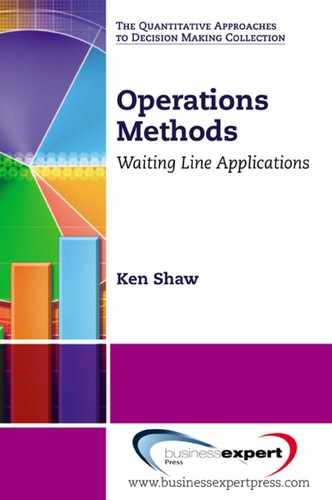The impetus for writing this book is the product of several conversations with friends and colleagues, an accumulation of professional experiences, and most recently, my interactions with business students and faculty regarding operations and process management improvements.
Nearly a decade ago, I retired from a long career that included individual and managerial responsibilities for a variety of engineering and business functions in several industries; many of these organizations were key players in the development of integrated circuit technology and computer applications. After a year or so working on restoring old cars, taking welding classes, and puttering around a small ranch property, the glow of retirement began to dim. When a former colleague approached me with the proposal of temporarily teaching an operations management course at the local university, I thought it would be an interesting challenge and agreed to do it. Little did I imagine then that this decision would lead to the past 8 years of teaching, new professional relationships, developing new courses, and reviewing several textbooks for authors and publishers.
The increased focus on supply chain principles and their business considerations in a global economy has often resulted in less classroom time in many business school curriculums for more in-depth coverage of specific operations methods, such as queuing analysis, linear programming, simulation methods, and the factors affecting the variability of the predicted results of such methods. As a result, these topics are often provided as chapter supplements on DVDs or the Internet for recent editions of operations management textbooks, and many methods are only briefly discussed in undergraduate classes. The expectation is that if students are made aware of the existence of these methods and if their use is needed in a future career, our graduates will be able to educate themselves regarding that use.
Discussions regarding this situation with my academic colleagues and some of the authors whose books I have reviewed indicate a need for small books focused on different operations methods to help senior-level students and business graduates in that self-education. This monograph on waiting lines will hopefully satisfy part of that need.
It is important that I acknowledge the valued discussions, advice, and inputs provided by several of my colleagues and friends and the professionals at Business Expert Press and Scribe. These individuals include the following:
- John Sloan, Zhaohui Wu, Rene Reitsma, V. T. Raja, Michael Curry, James Moran, Bryon Marshall, and Erik Larson in the College of Business at Oregon State University.
- James and Mona Fitzsimmons, who coauthored the textbook1 used in one of my courses and whose work provided me with a number of good ideas. They were the ones who inspired me to begin this book.
- David Parker, Scott Eisenberg, and Cindy Durand of Business Expert Press who provided encouragement, great feedback, and patience during the completion of the text.
- Rachel Paul McGrath and her editing colleagues at Scribe.
Last, but far from least, I must express my thanks and appreciation to my wife, Judy, and our children, Rachel and Jeremy, for their patience and encouragement as I strived to understand business processes better over the years.
